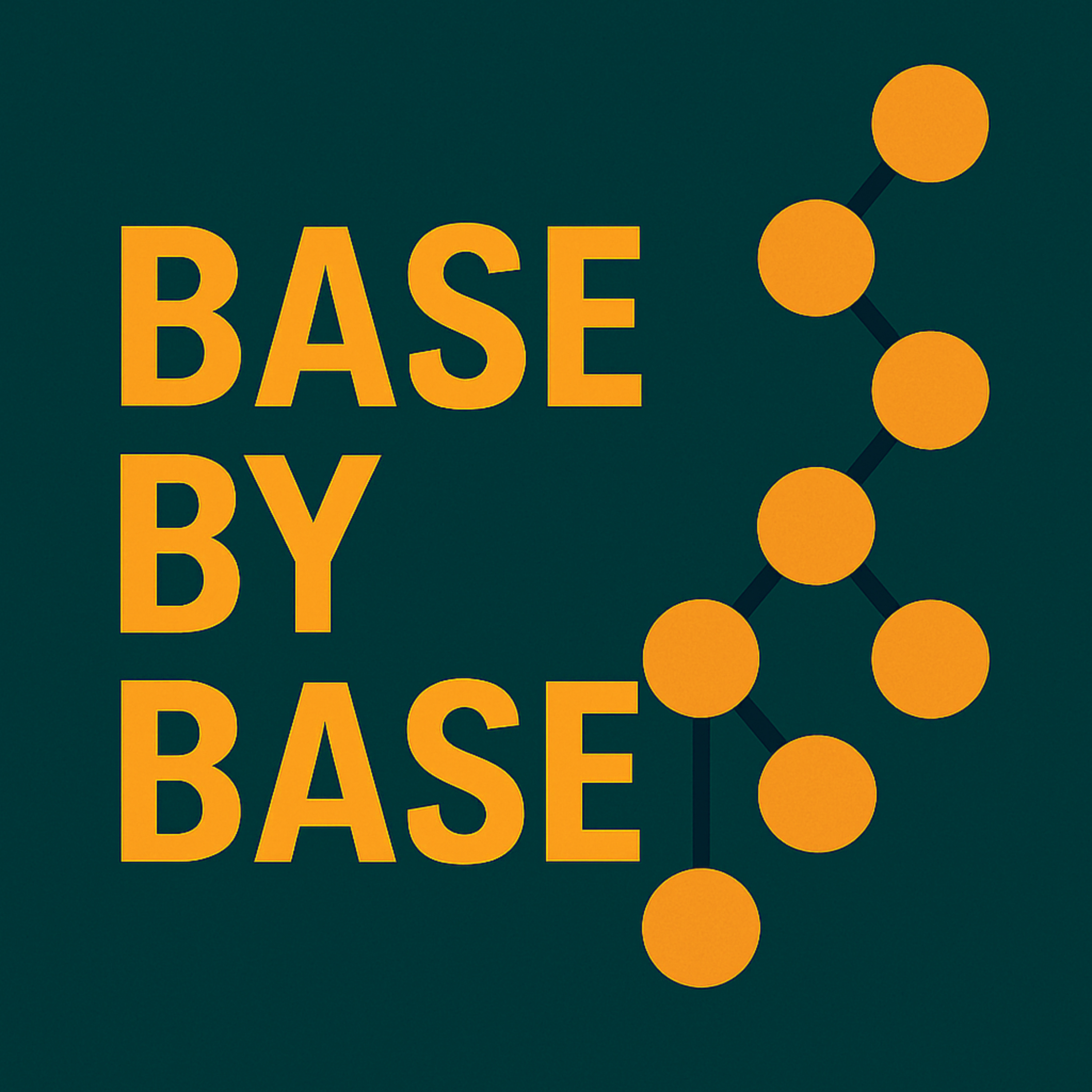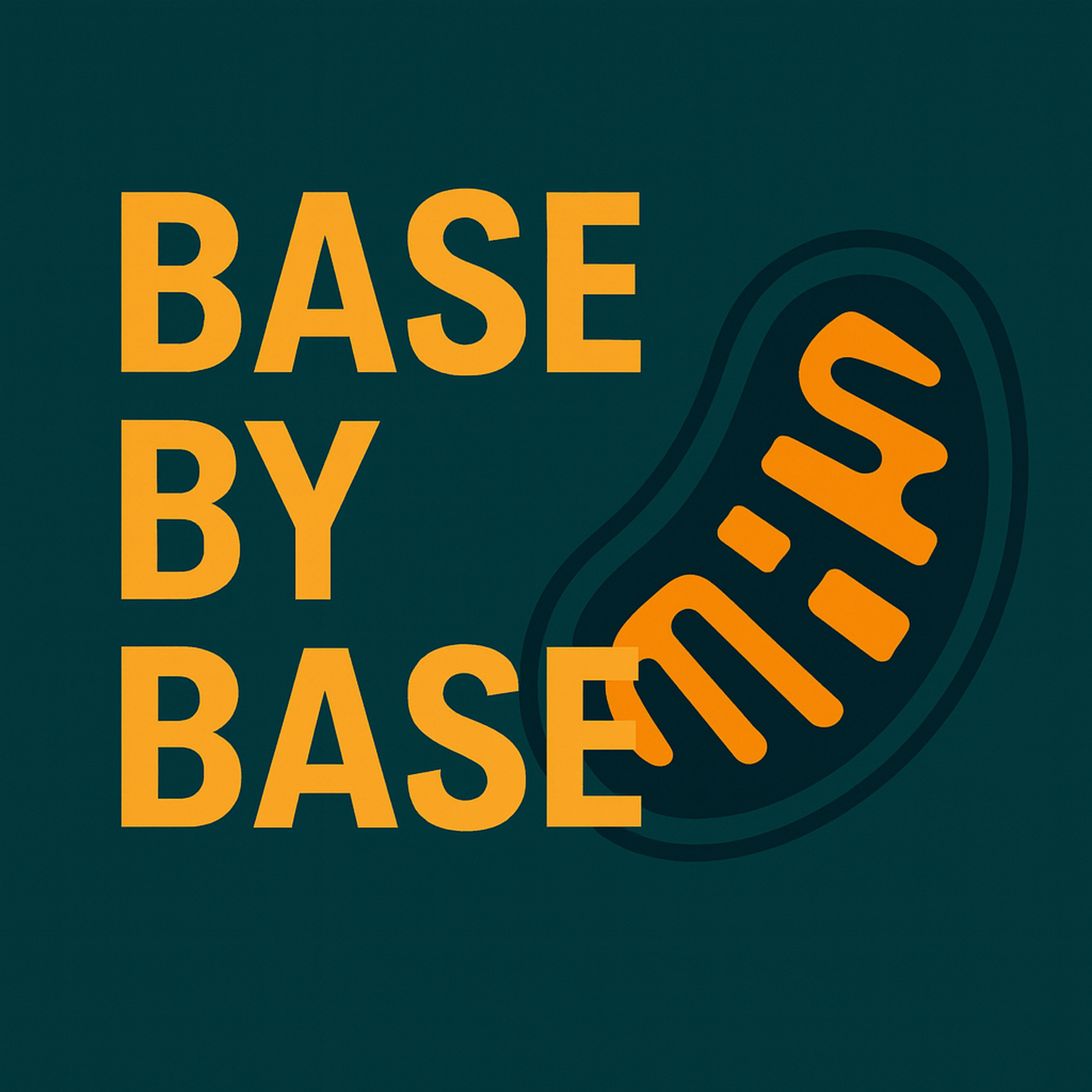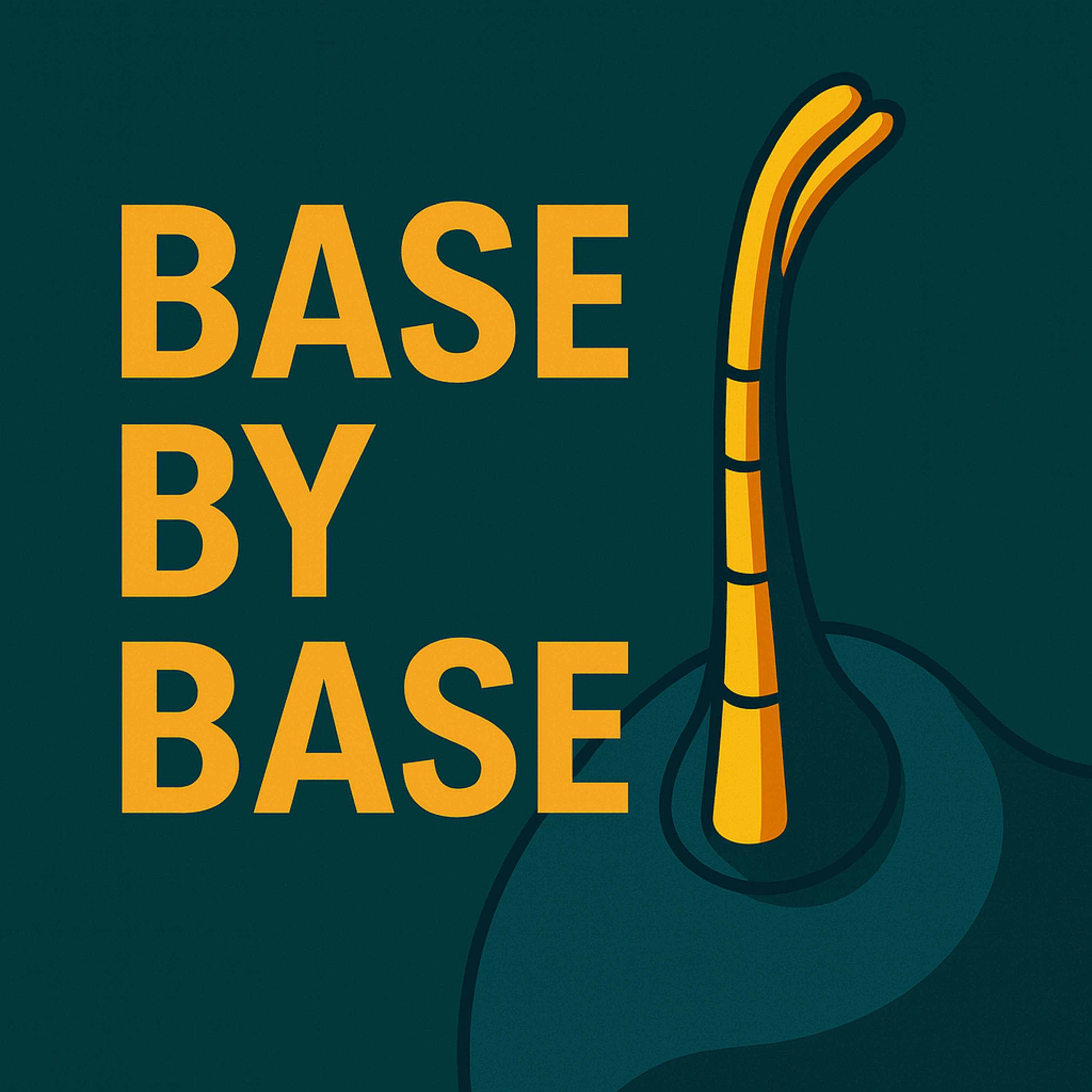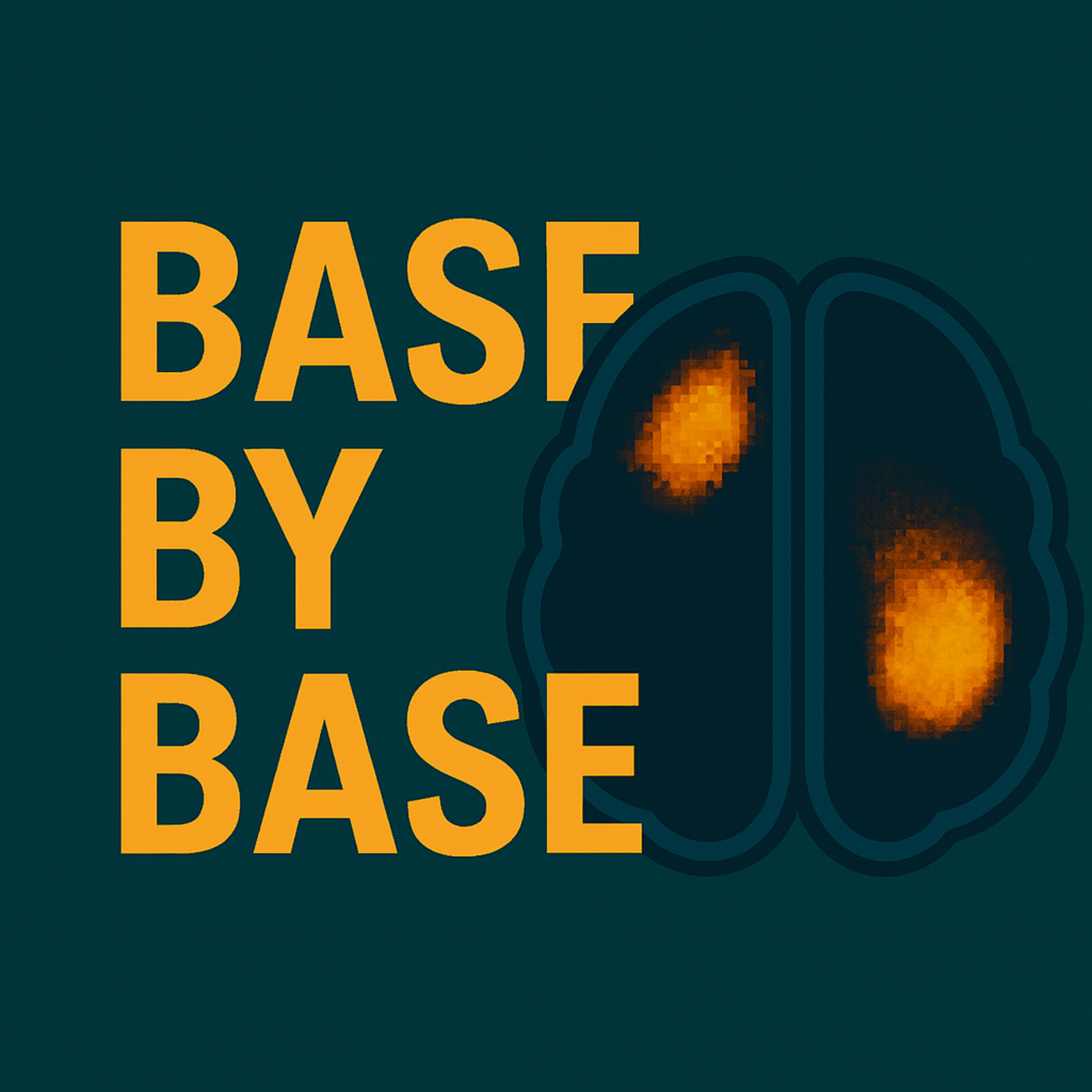Show Notes
️ Episode 51: Diagnosing the Undiagnosed — A Phenotype-Driven Pipeline for Mitochondrial DNA Discovery
In this episode of Base by Base, we dive into a powerful phenotype-guided strategy to uncover mitochondrial DNA (mtDNA) diseases in large-scale rare disease cohorts. Ratnaike et al. (2025), publishing in The American Journal of Human Genetics, present the results of a systematic reanalysis of 10,157 exome and genome datasets from the European Solve-RD project, applying a semi-automated pipeline that filters mtDNA variants and prioritizes them based on phenotype similarity using the HPO-driven MitoPhen database.
Study Highlights:
The researchers developed and validated a workflow combining the MToolBox pipeline for mtDNA variant calling and the MitoPhen similarity scoring system to assess the match between patient-reported symptoms and known mtDNA disease profiles.
They applied this approach to over 9,900 undiagnosed individuals and identified 135 candidates with rare mtDNA variants, leading to 37 confirmed or likely mtDNA diagnoses — an increase of 0.4% in diagnostic yield in a cohort where mitochondrial disease was not suspected.
Importantly, 92% of these new diagnoses had phenotype similarity scores above 0.3, validating the use of structured phenotypic data as a sensitive filter.
The model proved robust across sequencing platforms and heterogeneous datasets, highlighting the potential of incorporating phenotype similarity into routine rare disease genomics.
This work also underscores the importance of complete and specific phenotype data (e.g., ≥5 detailed HPO terms), which was associated with higher diagnostic success.
Conclusion:
By integrating automated mtDNA variant filtering with HPO-based phenotype similarity scoring, this study demonstrates a scalable and clinically relevant method to boost diagnostic rates for mitochondrial diseases. This approach is especially valuable in genomic datasets not initially enriched for suspected mitochondrial conditions and offers a roadmap for future phenotype-genotype analyses in rare disease diagnostics.
Reference:
Ratnaike, T., Paramonov, I., Olimpio, C., et al. (2025). Mitochondrial DNA disease discovery through evaluation of genotype and phenotype data: The Solve-RD experience. The American Journal of Human Genetics, 112, 1376–1387. https://doi.org/10.1016/j.ajhg.2025.04.003
License:
This episode is based on an open-access article published under the Creative Commons Attribution 4.0 International License (CC BY 4.0) – https://creativecommons.org/licenses/by/4.0/




